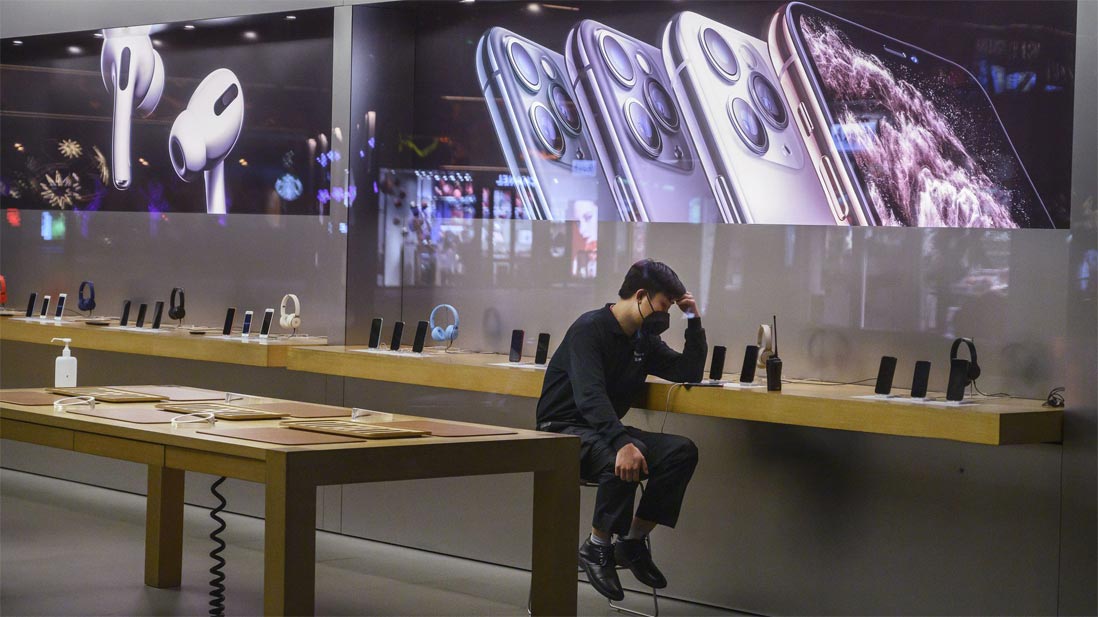Apple is a multinational technology company headquartered in Cupertino, California, that designs, develops, and sells consumer electronics, computer software, and online services.
As a U.S.-based company popular for its iPhones, the company relies on many third-parties, including those in China. Just like many other companies that sell electronics, Apple's supply chain runs through China in a big way, with the company outsourcing many of its products' manufacturing to Taiwan’s Foxconn among others.
The company predicted in its earnings release at the end of January that it would see revenue of $63–$67 billion for the March quarter. But in an update on its financial guidelines for the March 2020 quarter, the company said that it couldn't meet its revenue goals due to the impact of the novel Wuhan coronavirus in China.

Apple said that both constrained iPhone supplies worldwide and lower customer demand for Apple products in China as the main culprit for the company's reduced performance for the quarter
Apple said that all of its manufacturing partners are located outside of the Hubei province, which was the epicenter for the coronavirus epidemic. All have reopened, mostly after the Lunar New Year, but are slow to regain their full-speed production capacity.
The closure of businesses and factories have made them resume slower than expected.
“Work is starting to resume around the country, but we are experiencing a slower return to normal conditions than we had anticipated,” said Apple, one of the world’s most valuable public companies.
And with most of its stores in China were either closed or operating at reduced hours, sales of Apple products would be lower, said Apple as one of the most valuable company in the world.
The company also said that is is more than doubling its previously announced donation to help in the public health fight against the Wuhan coronavirus.
According to a report from Nikkei, the shortage of supplies is expected to remain low until April or longer.
The Wuhan coronavirus has caused more 1,800 deaths worldwide and 72,000 infected in China alone. The fear over the deadly disease forced many governments and companies to stop their workers and employees from travelling in and out of China. Businesses were closed for quite some times, with many people advised to remain indoors and mandated to wear face masks when out to public places.
These have given impact to the global economy.
This is because for example, if one factory stays closed and they're the only supplier, every other business that depend on that factory has to stop and wait. If there are two factories, with one remained open, that factory will experience a massive surge of demand, rendering it less capable of meeting deadlines.
With many electronic supply chain runs through China, many others are also affected.
Even Chinese tech companies were affected. For example Oppo, Xiaomi and Vivo have 83%, 72%, and 65% of their production in China respectively.
Previously, the coronavirus fears have cancelled the 2020 Mobile World Congress.